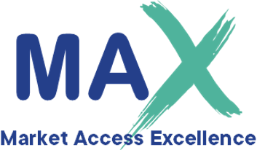Insight 5 of 6 – Fifth Success Requirement
CapSys Group’s latest global research, Re-thinking Market Access, identified six success requirements to enable Market Access to strategically withstand market pressures and achieve Market Access Excellence. For the fifth success requirement, Market Access leaders and experts at CapSys shared the must-have skills and competencies exhibited by Market Access specialists in leading pharmaceutical and life sciences organizations to overcome industry challenges and achieve successful market access.
Pharmaceutical and life sciences organizations face a range of challenges that impact their functions and operations. These include evolving healthcare systems, varied and emerging market access landscapes, shifting stakeholder needs and demographics, and advances in therapies and technologies. CapSys identified four technical success requirements that Market Access functions need to master to achieve Market Access Excellence: 1) Deep understanding of stakeholders and the market access landscape; 2) Relevant and timely evidence generation; 3) Effective stakeholder engagement; and 4) Value communication (insights 1, 2, 3 and 4 ). To deliver on those success requirements in today’s dynamic and complex market access environment and to sustain a competitive advantage, life sciences companies need to work on two organizational success requirements: developing key organizational capabilities for market access (Insight 6) and strategic talent development to enhance individual market access competencies (Insight 5).
Empowering Market Access demands a new mindset related to developing Market Access talent
Market Access leaders and experts at CapSys recognized several important organizational shortcomings relating to strategic development of Market Access talent that impact the effectiveness of the Market Access function. Based on the observed shortcomings, CapSys identified key levers of success within the Market Access Excellence Framework that Market Access leaders employ to develop their talent and improve relevant individual competencies.
1. Core technical market access skills are well established, but strategic thinking is often underdeveloped
Interviewed experts agreed that technical skills, such as dossier submission for pricing, are the best-established skills among Market Access specialists. However, it has become increasingly critical for Market Access to move from a purely technical role to a far more strategically focused one, thereby expanding the remit of the function. The value and importance of market access-related activities and expertise earlier in clinical development and throughout the product lifecycle is increasing. Stakeholder requirements, such as those from payers, are more complex or specific and addressing them requires starting to act much earlier in product development than before. Therefore, adequately resourcing the Market Access team and building the skills and competencies needed to address these requirements becomes critical.
Market Access teams are asked to broaden their involvement from the standard commitments such as health economics and outcomes research (HEOR) competencies or developing pricing and reimbursement dossiers, to taking on greater involvement in, for example, evidence generation and policy shaping. Strategic thinking and scenario planning skills, required to think through and develop concepts such as indication sequencing or a portfolio strategy, are therefore highly necessary, but are frequently underdeveloped or under-represented among Market Access team members. In the short term the problem can be alleviated by outsourcing the strategic thinking to strategy consultants. However, as this competency is an integral part of many important organizational capabilities such as holistic brand planning, it should be sufficiently present and cultivated in-house (read more on organizational capabilities in Insights 6).
Market Access functions don’t need more technical skills. They need more business-minded communication, strategic, and partnership skills.
– Head of Market Access Academy, US Large Pharma
Across the Re-thinking Market Access series of insights, interviewed experts also acknowledged that Market Access functions currently have insufficient business skills in relation to stakeholder understanding and engagement, generation of stakeholder insights, value communication, commercial negotiations, external partnership management and cross-functional collaboration. These skills gaps were particularly apparent when supporting new or innovative products which introduce changes in stakeholders, competition, and technologies. Advanced business, problem-solving and interpersonal skills are increasingly in demand to effectively develop market access strategies in a changing landscape.
To address and overcome this shortage and advance internal skills and capabilities, Market Access functions need to take a more strategic approach to developing their talent. The aforementioned skills and competencies need to become part of Market Access competency models, and sufficient time and financial resources should be allocated to developing strong and focused capability-building programs and fostering cross-functional integration. In addition to building internal capabilities, companies need to supplement these by strategically selecting outsourcing to expert partners where specific skills are needed and where it is appropriate.
Social skills are really important. We are investing a lot in mock negotiations to get ready for the payers.
– Global Access Strategy Lead, EU Small Pharma

Enhance the Market Access competency models to include strategic thinking, problem solving and scenario planning skills as well as specific business skills such as effective communication and negotiation. Roll out related capability-building programs
2. Fundamental knowledge about market access is lacking in the wider organization
Achieving market access and reimbursement depends on many factors and therefore cannot be delegated solely to the Market Access function. Cross-functional collaboration is needed to generate the insights, develop the right evidence and engage the relevant stakeholders in a meaningful way.
The CapSys study revealed that often even basic knowledge about what payers and health technology assessment (HTA) bodies require, and what it takes to communicate the value of a product, is not widely spread beyond the Market Access function and is insufficient within senior company leadership. This makes cross-functional collaborations more difficult, leads to less robust brand strategies, fosters unrealistic expectations regarding the commercial potential of a product in the market, and paves the way for underwhelming product performance and success.
Organizations need to be flexible and agile to meet the demands of today’s market access landscape, and they can do so by allocating sufficient resources to disseminating a basic understanding of market access requirements across all key functions and senior leadership.

Develop training programs and disseminate basic undestanding of market access landscape and requirements in all key functions as well as senior leadership of the company
3. Modern approaches to adult learning are not sufficiently leveraged
Market Access experts revealed that often the approaches chosen by companies to improve individual competencies in their talent are not very sophisticated. More often than not they are limited to on-the-job learning during the normal course of day-to-day business, and sometimes supplemented with classic ‘front-of-the classroom’ trainings (online or face to face) for specific topics.
While these are important ingredients of learning experiences, they are often insufficient and not very effective in changing people’s behaviors. For learnings to stick and contribute to a better way of working, additional elements utilized in adult learning must be added. Examples include assigning talent to specific project work related to the learning objective, practical case studies, thoughtful job rotation, and more.

Implement programs that combine all elements of adult learning to complement classic front-of-the-room training approaches
Overview of the CapSys Market Access Excellence Framework for strategic talent development to enhance individual market access competencies

Figure 1: Overview of the shortcomings in ensuring individual market access competencies, and detailed success requirements to overcome them. CapSys Group
The CapSys Market Access Excellence Canvas
CapSys’ Market Access Excellence Canvas serves as a (self-)assessment tool and a framework for developing technical and organizational success to achieve Market Access Excellence. The full canvas can be viewed in the final Re-thinking Market Access insight article. Below is a section of the canvas that assesses the level of Market Access Excellence the organization operates at in relation to ensuring relevant organizational skills and capabilities (Figure 2). Market Access leaders need to ask themselves the following key questions:

Figure 2: A (self-)assessment tool for enhancing market access competencies. CapSys Market Access Excellence Canvas. CapSys Group
The Re-thinking Market Access series of insights
This is the sixth in a series of eight insight articles, based on CapSys’ global Re-thinking Market Access study and focused on Market Access Excellence in pharma and life sciences. The introductory article provides an overview of the study and its outcomes. The six following insight articles (Insights 1-6) provide key content and food for thought on the six success requirements for Market Access Excellence, including observed common shortcomings and improvement opportunities. The final article in the series provides a framework and (self-)assessment tool, the Market Access Excellence Canvas, to assess your organization’s maturity level and potential gaps to close on the journey to achieve Market Access Excellence. Sign up here for upcoming articles in the ‘Re-thinking Market Access’ series.
The Re-thinking Market Access study aims to understand the challenges and trends that the Market Access function is facing today, derive implications and levers of success, both on a strategic and operational level. It provides a systematic approach to assess performance and develop solutions to overcome the challenges. The study was conducted through interviews with industry experts and key opinion leaders in Market Access, from small to large pharmaceutical and life sciences organizations. Contributors had broad therapeutic area expertise, including oncology, orphan diseases, and dermatology.
There is a wealth of additional insights from the conducted expert interviews. If you want an in-depth discussion on the gathered insights or a conversation on the implications for your company, please get in touch with our CapSys experts, Patrick Koller and Kenneth Weissmahr.









